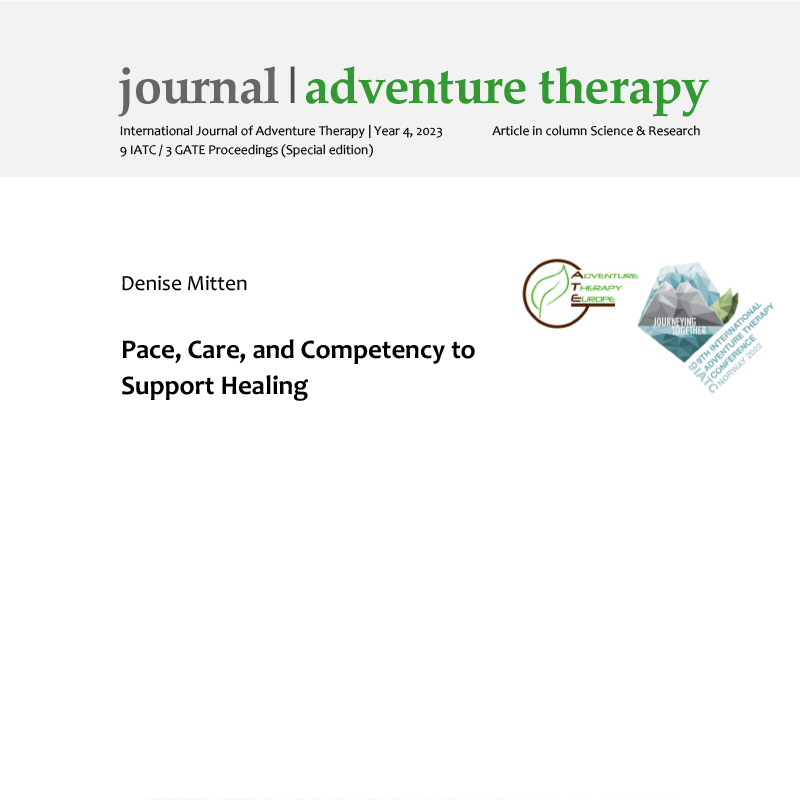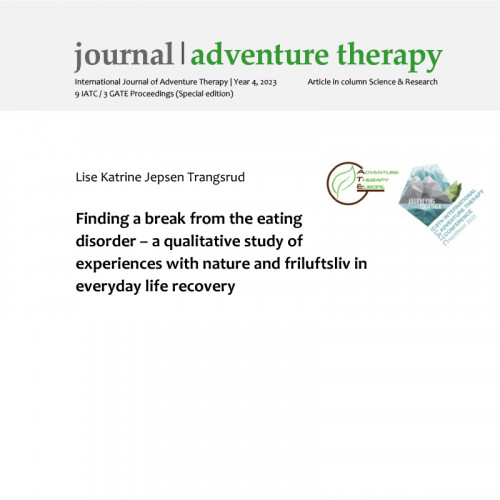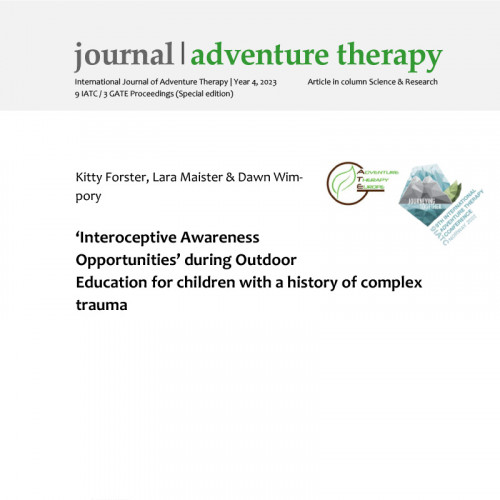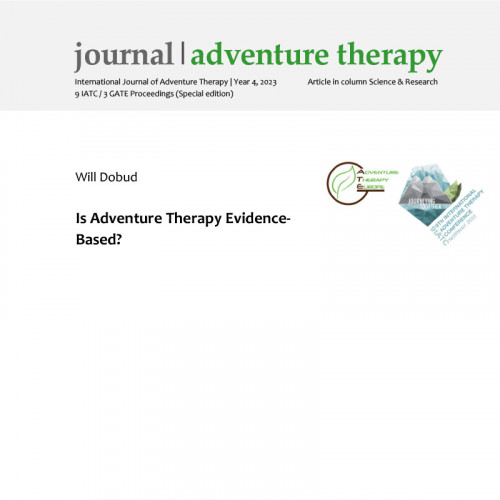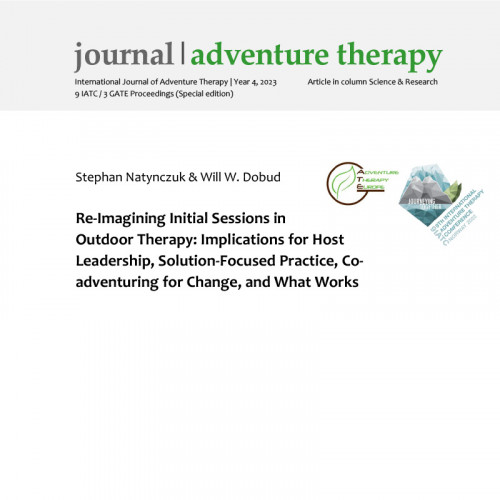Authors: Denise Mitten
Practitioners encourage participants to examine and perhaps change or create new stories. Like participants, practitioners ought to examine their stories about their practice to discern if they are accurate or relevant for participants. This paper explores program components through the lens of pace. Main areas discussed are how pace impacts a) relationships and care on adventure therapy experiences (self care, care of the natural environment) and b) the learning and competency gained by participants (group dynamics, choice). A pace that allows adequate time for a) the facilitator to demonstrate care, and for the participant to receive it; b) the participants to continually process their experience; c) skill development and sense of competency; d) exploring choice and healthy engagement in activities; and e) engagement in healthy and reciprocal relationships with the natural environment and other people is crucial for reaching goals, including inclusivity and supporting transformational learning in an equitable manner.
